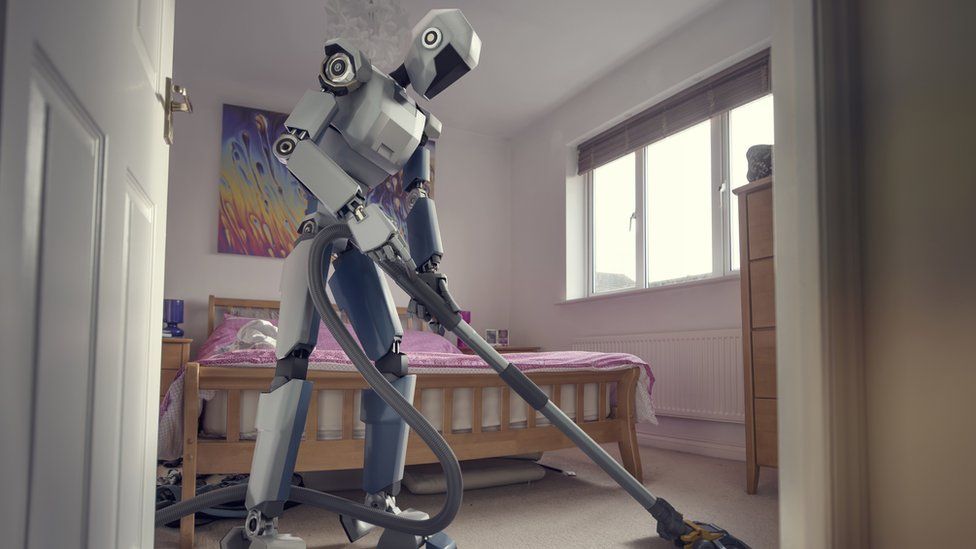According to experts, about 39% of the time spent on household chores and caring for loved ones could be automated within a decade.
65 experts in artificial intelligence (AI) were consulted by researchers from the UK and Japan to make predictions about the level of automation in everyday household tasks in ten years.
According to experts, the automation of grocery shopping will likely be greatest, whereas AI's impact on child or elder care will likely be minimal.
The study has been published in PLOS ONE.
The University of Oxford and Japan's Ochanomizu University conducted research to determine the potential effects of robots on unpaid domestic work. "If robots will take our jobs, will they at least also take out the trash for us?," they questioned.
The researchers noted that the most frequently produced and sold robots worldwide are those used for "domestic household tasks," such as robot vacuum cleaners.
The team solicited predictions from 29 AI experts from the UK and 36 AI experts from Japan.
Researchers discovered that in the UK, men tended to be more optimistic about domestic automation than women, whereas this was the opposite in Japan. .
The tasks that experts thought automation could perform, however, varied: "Only 28% of care work, including activities like teaching your child, accompanying your child, or taking care of an older family member is predicted to be automated," said Dr. Lulu Shi, postdoctoral researcher, Oxford Internet Institute.
However, experts predicted that technological advancements would reduce our time spent grocery shopping by 60%.
There have been many predictions about the automation of household tasks in the past, so skepticism may be warranted.
Robots will relieve us of household duties "in the next ten years," according to numerous predictions. A home robot that could cook dinner, walk the dog, watch the baby, go shopping, mix a cocktail, and perform a variety of other household chores was featured on the television program Tomorrow's World in 1966.
The news story stated that if the device's creators were given just £1 million, it could be operational by 1976.
The promise of self-driving cars being on the streets and replacing taxis has been there, I believe, for decades now. However, we haven't quite been able to make robots function well, or these self-driving cars navigate the unpredictable environment of our streets. Ekaterina Hertog, associate professor in AI and Society at Oxford University and one of the study's authors, draws comparisons with the optimism that has long surrounded self-driving cars. In that regard, homes are comparable.
Dr. Kate Devlin, reader in AI andamp; Society at King's College, London, who was not involved in the study, suggests that technology is more likely to assist humans than to replace them: "It's hard and expensive to make a robot that can do multiple or general tasks. Making assistive technology that works alongside us rather than in place of us is simpler and more beneficial, she argued.
According to the research, domestic automation could free up lots of time currently devoted to unpaid domestic work. Men of working age perform less than a fifth of this unpaid work in Japan compared to women of working age, who perform about half as much of it in the UK.
According to Prof. Hertog, the disproportionate amount of household work that falls on women has an adverse effect on their income, savings, and pensions. Therefore, the researchers argue that greater automation could lead to greater gender equality.
But the cost of technology can be high. A rise in inequality and less free time will result if systems to help with housework are only affordable to a portion of society, according to Prof. Hertog.
And she added that society needed to be aware of the problems caused by homes with a lot of smart automation, "where an equivalent of Alexa is able to listen in and sort of record what we're doing and report back.".
"I don't think that we as a society are ready to handle that general assault on privacy," said the speaker.







